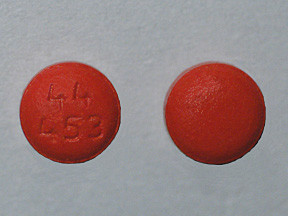PHENYLEPHRINE - ORAL
PHONETIC PRONUNCIATION: (FEN-il-EF-rin)
COMMON BRAND NAME(S): Sudafed PE, Sudogest PE
GENERIC NAME(S): phenylephrine HCl
Uses
USES: Phenylephrine is used for the temporary relief of stuffy nose, sinus, and ear symptoms caused by the common cold, flu, allergies, or other breathing illnesses (e.g., sinusitis, bronchitis). This medication works by decreasing swelling in the nose and ears, thereby lessening discomfort and making it easier to breathe. Cough-and-cold products have not been shown to be safe or effective in children younger than 6 years. Therefore, do not use this product to treat cold symptoms in children younger than 6 years unless specifically directed by the doctor. Some products (such as long-acting tablets/capsules) are not recommended for use in children younger than 12 years. Ask your doctor or pharmacist for more details about using your product safely. These products do not cure or shorten the length of the common cold and may cause serious side effects. To decrease the risk for serious side effects, carefully follow all dosage directions. Do not use this product to make a child sleepy. Do not give other cough-and-cold medication that might contain the same or similar ingredients (see also Drug Interactions section). Ask the doctor or pharmacist about other ways to relieve cough and cold symptoms (such as drinking enough fluids, using a humidifier or saline nose drops/spray).
How to use PHENYLEPHRINE - ORAL
HOW TO USE: If you are using the over-the-counter product, read and follow all directions on the product package before taking this medication. Take this medication by mouth with or without food or as directed by your doctor. Taking it with food may decrease stomach upset. If you are using the liquid, carefully measure your prescribed dose using a medication-measuring device or spoon. Do not use a household spoon because you may not get the correct dose. If you are using chewable tablets, chew each tablet thoroughly before swallowing. If you are using a product made to dissolve in the mouth (tablets or strips), dry your hands before handling the medication. Place each dose on the tongue and allow to dissolve completely, then swallow it with saliva or with water. The dosage is based on your age. Do not increase your dose or take this medication more often than directed without your doctor's approval. Improper use (abuse) of this medication may result in serious harm (e.g., hallucinations, seizure, death). If your symptoms worsen or do not improve after 7 days, if you develop fever/chills, or if you think you may have a serious medical problem, seek immediate medical attention.
Side Effects
Precautions
Interactions
Overdose
Images

- color
- reddish-brown
- shape
- round
- imprint
- 44 453

- color
- reddish-brown
- shape
- round
- imprint
- 44 453

- color
- reddish-brown
- shape
- round
- imprint
- 44 453
Reviews
Faq for PHENYLEPHRINE - ORAL
Phenylephrine is an oral medication that is used to temporarily relieve symptoms of congestion due to colds, allergies, or sinusitis. It is a decongestant that works by narrowing the blood vessels in the nasal passages.
Phenylephrine is usually taken orally, with or without food. The dosage and frequency of use will depend on your age, medical condition, and response to treatment. It is important to follow the instructions provided by your healthcare provider or the product label.
Common side effects include headache, dizziness, nervousness, restlessness, tremor, increased heart rate, and increased blood pressure. These side effects are usually mild and go away on their own. However, if they persist or worsen, it is advised to consult your doctor.
Phenylephrine can be used for children, but the dosage must be adjusted according to their age and weight. It is important to consult a pediatrician before giving Phenylephrine to children.
Phenylephrine may interact with certain medications such as monoamine oxidase inhibitors (MAOIs), tricyclic antidepressants, and some blood pressure medications. It is important to inform your doctor or pharmacist about all the medications you are currently taking to avoid potential interactions.
The use of Phenylephrine during pregnancy or breastfeeding should be discussed with a healthcare provider. In general, it is recommended to avoid using decongestants, including Phenylephrine, during pregnancy unless specifically prescribed by a doctor.
Phenylephrine usually starts working within 15 to 30 minutes after taking it orally. However, the exact onset of action may vary from person to person.
Phenylephrine is generally recommended for short-term use, typically not exceeding 7 days. Prolonged use may lead to rebound congestion or other adverse effects. If symptoms persist beyond the recommended timeframe, it is important to consult a healthcare professional.
Some individuals may experience allergic reactions to Phenylephrine. Allergic symptoms may include rash, itching, swelling, severe dizziness, or difficulty breathing. If you experience any of these symptoms, seek immediate medical attention.
Disclaimer
IMPORTANT: HOW TO USE THIS INFORMATION: This is a summary and does NOT have all possible information about this product. This information does not assure that this product is safe, effective, or appropriate for you. This information is not individual medical advice and does not substitute for the advice of your health care professional. Always ask your health care professional for complete information about this product and your specific health needs.

No Reviews Yet